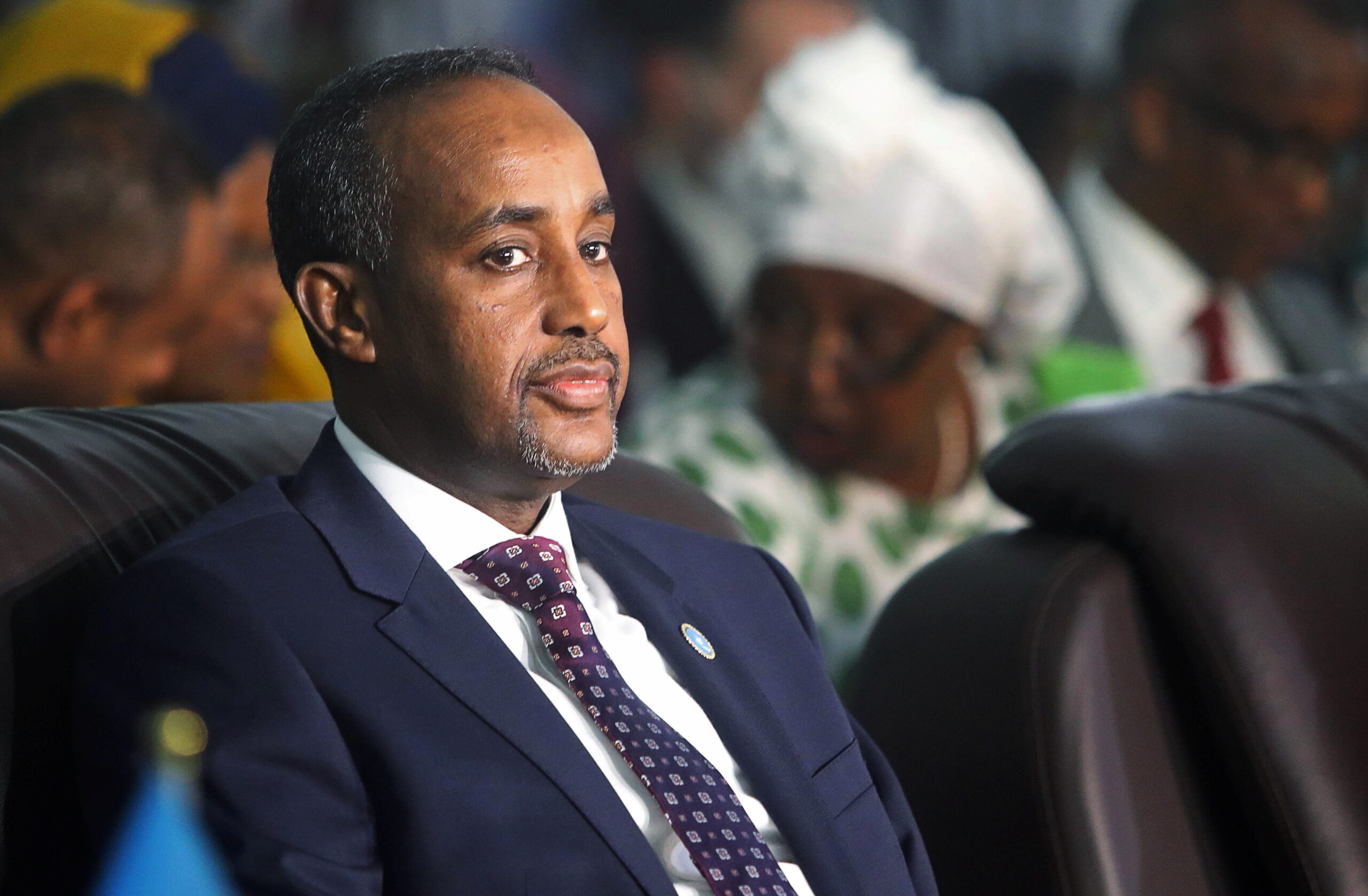Connecting Somali Voices: Exploring The Somali TDM Telegram Community Today
Finding ways to stay close, even when miles separate us, feels really important for people all over the world. For the Somali people, whose communities stretch across many countries, digital spaces have become a true gathering spot. This is where something like a Somali TDM Telegram group can play a big part, you know, in keeping connections strong.
These online places offer a simple way for folks to chat, share news, and just be together, even if they live far apart. It is that kind of connection that helps keep cultural ties alive and well. People can talk about things that matter to them, like their language or traditions, and find others who understand their experiences, actually.
This article looks at how these digital groups, like those found on Telegram, fit into the larger story of the Somali people. We will talk about their rich culture, where they live around the globe, and why these online communities are so meaningful for them right now, basically.
Table of Contents
- The Somali People: A Global Community
- Somalia's Place in the World
- Online Spaces: Bridging Distances
- Common Questions About Somali Online Communities
The Somali People: A Global Community
The Somali people have a truly widespread presence across the globe. Their history and culture connect them deeply, no matter where they call home. This shared background makes community very important, sometimes more than just a place on a map, in a way.
Language and Cultural Threads
Somali is a Cushitic language, and it has a long history of study. People were writing academic papers about it even before the year 1900. This shows just how significant the language has been for a very long time, you know.
One particular form of the language, Benadir, also known as coastal Somali, is spoken along the Benadir coast. This area stretches from Adale down to south of Merca. It includes the city of Mogadishu, and also the immediate areas behind the coast, too.
The language acts as a strong tie for many people. Over 19 million Somalis live in Somalia itself, and also in neighboring countries like Djibouti, Ethiopia, Yemen, and Kenya. Many more speak the Somali language from their homes in the global diaspora, so.
It is worth noting that about 10% of the Somali diaspora lives within North America. This shows just how far the community reaches. The Somali language is part of a larger group of African languages, which includes Amharic, Ibo, Twi, Yoruba, Bantu, and Swahili, among others, actually.
Speaking the same language helps people share stories and keep traditions alive. It means that someone in Mogadishu can talk easily with someone in Djibouti, or even someone in North America. This shared tongue is a big part of their identity, definitely.
Cultural threads are woven through everyday life. They are present in how people talk, what they eat, and the stories they tell. These threads help connect people across vast distances. It is quite a powerful thing, to be honest.
Life and Livelihoods
The Somali people make up most of the population in Somalia. Their way of life often involves moving from place to place. Many of them follow a mobile way of life, pursuing nomadic pastoralism. This means they move with their animals to find good grazing land, you know.
Others follow agropastoralism, which combines raising animals with some farming. This traditional way of living has shaped their communities for generations. It is a very practical approach to life in their region, so.
Livestock is a really big part of the country's economy. It accounts for more than 40% of the gross domestic product, which is the total value of goods and services produced. It also makes up 50% of the country's export earnings, too. This shows just how important animals are to the economy, apparently.
This way of life, centered on animals and movement, often means that communities are spread out. It makes the idea of connecting with others, perhaps through digital means, even more valuable. People want to stay in touch with family and friends who might be far away, you know, following their herds or living in different cities.
The daily rhythm of life, whether it is pastoral or agropastoral, fosters a strong sense of community. People rely on each other. When they are separated by distance, they find new ways to keep that reliance and connection going. This is where modern tools can really help, you see.
Somalia's Place in the World
Somalia sits in a very distinct part of Africa. Its location has shaped its history and its people. Understanding its place on the map helps us see why connections, both local and global, are so important for its people, very much.
Geographic Identity
Somalia is the easternmost country of Africa. It lies on what people call the Horn of Africa. The country extends from just south of the equator northward to the Gulf of Aden, too. This long coastline gives it a unique position in the region, in a way.
The Gulf of Aden forms Somalia's northern borders. To the east, it is bound by the Somali Sea and the Guardafui Channel. These bodies of water are a big part of the country's natural boundaries. They shape its interaction with the wider world, you know.
Somalia's western border was set by colonial powers a long time ago. This border, in some respects, divides lands traditionally occupied by the Somali people. As a result, Somali communities are also found in Djibouti, Ethiopia, and Kenya. This border remains a source of discussion, sometimes even dispute, so.
The geography means that many Somali people live outside Somalia's official lines. This fact makes digital connections even more useful. It helps people who share a culture but live in different countries to stay in touch. It is a way to overcome those old, drawn lines on a map, quite literally.
The land itself, from the coast to the interior, has shaped the lives of the people. It has led to their mobile way of life. This movement, however, does not lessen their desire to stay connected to their roots and to each other. That is a rather constant truth, you see.
Recognizing a Nation
The political landscape of Somalia has seen many changes over the years. A notable moment happened in January 2013. The United States officially recognized the Somali government for the first time since 1991. This was a significant step, you know, for the country's standing in the world.
Despite this recognition, the United States government does not maintain a diplomatic presence in Somalia at this time. This means there is no US embassy or consulate there right now. This fact, in a way, highlights the ongoing path to full stability and international engagement, apparently.
There are official web sites for Somalia, providing links and information. These sites cover Somalia's art, culture, geography, history, travel, and tourism. They also give details about cities, the capital city, airlines, embassies, tourist boards, and newspapers, too. These sites are a window into the country for people outside its borders, obviously.
These efforts to share information about Somalia with the world are important. They help people learn about the country's rich heritage and its present-day efforts. It is a way to build bridges of understanding, which is something that helps everyone, you know.
The path to a stable and fully recognized nation is a long one. Yet, the people of Somalia continue to build and connect. Their presence globally, and the efforts to represent their country, show a strong spirit. This spirit finds expression in many ways, including online communities, so.
Online Spaces: Bridging Distances
In our modern world, digital tools have changed how people stay in touch. For communities like the Somali people, who live across many different places, these tools are more than just convenient. They are a lifeline for culture and connection, very much.
Why Digital Connections Matter
We talked about how over 19 million Somalis live in Somalia, Djibouti, Ethiopia, Yemen, and Kenya. Many more speak the Somali diaspora language in countries all over the world. About 10% of the Somali diaspora lives within North America, for instance. This wide spread means that staying connected can be a real challenge, you know.
Digital connections help overcome these distances. They make it possible for family members to talk, for friends to share news, and for people to feel part of a larger community. This is especially true when borders are not always easy to cross, as a matter of fact.
Think about how people once used forums to connect. The text mentions a very popular forum where people could register, and it was free and quick. It even gave out over $68,000 in prizes to active posters. This shows a long history of Somali people using online spaces to gather and share, so.
These online gathering spots are not just for fun. They are places where people can find support, share cultural knowledge, and discuss current events. They help keep the language alive for those born outside Somalia. They are, in a way, a digital homeland for many, apparently.
The need for these connections is very real. When you have family members living in different countries, or even different continents, a digital space makes the world feel a lot smaller. It helps people feel less isolated and more part of something bigger, you know.
The Role of Telegram
Telegram is a messaging app that has become quite popular for group communication. It lets people create large groups, share files, and send messages securely. For communities that are spread out, like the Somali diaspora, it offers a practical solution for staying in touch, honestly.
It helps people stay connected across vast distances. Imagine being able to chat with your relatives in Mogadishu, or a friend in London, all in one place. Telegram makes that kind of ongoing conversation possible, very easily.
This is where the idea of a "Somali TDM Telegram" group comes in. While the exact meaning of "TDM" might vary from group to group, it typically points to a specific type of community or focus within the broader Somali Telegram space. It could be a group for discussions, news, or just general chat among people with shared interests, you know.
These groups can be a hub for sharing cultural insights. People might share traditional stories, discuss Somali music, or even organize virtual events. It is a way to pass on heritage to younger generations, and to keep it vibrant for everyone involved, so.
Telegram's features, like its ability to handle many members in a group, make it suitable for large communities. It means that many voices can come together in one digital space. This helps create a feeling of togetherness, even when physical distance is a factor, definitely.
Finding Your Place in Somali TDM Telegram
If you are looking to connect with Somali communities online, Telegram can be a good starting point. Finding a "Somali TDM Telegram" group might involve a bit of searching. People often share links to these groups within existing networks, or through word of mouth, you know.
When you join such a group, it is good

Somali Telegram Link: A Comprehensive Guide To Accessing And Utilizing

Exploring The Rise Of Wasmo Somali Telegram 2025

Exploring The Rise Of Wasmo Somali Telegram 2025